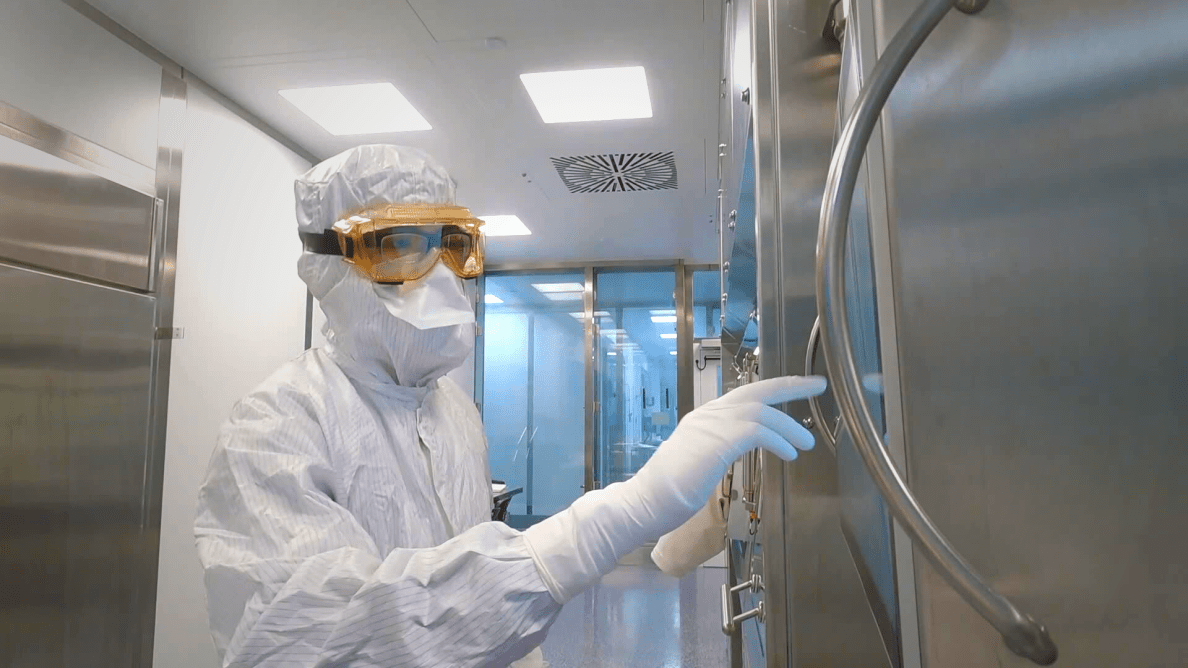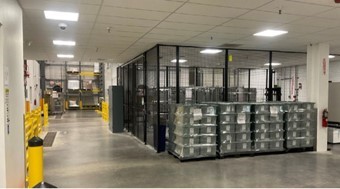Addressing the global shortage of TICE BCG
A new facility will triple our manufacturing capacity and address anticipated global demand for TICE BCG for the foreseeable future
May 30, 2025

Since 2012, when Merck became the sole manufacturer of TICE® BCG BCG LIVE (for intravesical use) in many locations around the world, increasing global demand has outpaced our current maximum manufacturing capabilities. Committed to producing TICE BCG, in 2021 we announced our plans to construct a new manufacturing facility to significantly expand our production capacity for TICE BCG.
Once fully operational, the new facility will triple our current manufacturing capacity, with supply gradually increasing over time, and address global demand for TICE BCG. We’re investing more than $650 million in the new manufacturing facility, which is expected to be fully operational by late 2026 following inspection, regulatory review and approval.

This medicine has a lengthy and complex manufacturing process. Each batch takes more than three months to make, 30 days of which are spent waiting for the growth of a bacteria used to make the medicine.
This investment reaffirms Merck’s longstanding commitment to producing this medicine, and all our medicines, for patients who need them. We recognize the impact supply shortages can have on patients when they can’t receive the medicines they need. Until the new facility is complete, we’ll continue to use a system to proportionally allocate TICE BCG to minimize disruption to patient care as much as possible.
If patients have questions regarding TICE BCG, they should speak with their physicians. Additional information related to the shortage, current allocation practices and our efforts to increase supply, including construction of a new manufacturing site, is below.
What caused the TICE BCG shortages and backorders?
Since 2012, when Merck became the sole manufacturer of TICE® BCG BCG LIVE (for intravesical use) in many locations around the world, increasing global demand has outpaced our current maximum manufacturing capabilities. While we have many years of experience producing TICE BCG, this medicine has a lengthy and inherently complex manufacturing process.
Prior to 2012, additional manufacturers supplied the U.S. market with TICE BCG, with Merck providing 30-40% of the U.S. supply. As other manufacturers exited the U.S. market in 2012, Merck increased production of TICE BCG to the full extent allowed by our current manufacturing capacity, which effectively doubled our supply of TICE BCG to the U.S. market.
What’s the latest update on the new TICE BCG facility?
Merck is investing more than $650 million to construct a new manufacturing facility to significantly expand production capacity for TICE BCG (first announced in 2021). We expect the facility to be fully operational by late 2026, following inspection, regulatory review and approval, and will address the anticipated demand for TICE BCG.
Once operational, our manufacturing capacity of TICE BCG will triple, and we expect supply to gradually increase over time following local market review and approvals.
How does the TICE BCG allocation process work?
To minimize disruption to patient care as much as possible until the new facility is complete, we’ll continue to use a system to proportionally allocate TICE BCG based on historical demand or in accordance with existing contractual obligations.
Merck allocates available supply among its network of wholesalers and distributors based on historical purchasing patterns or in accordance with existing contractual obligations. In turn, wholesalers and distributors allocate their inventory of TICE BCG to their own customers. End customers, including hospitals or private physician practices, cannot order product directly from Merck. This process is designed to proportionally allocate TICE BCG to minimize disruption to patient care as much as possible.
Where can I find more information about the availability of TICE BCG?
Patients:
Patients should reach out to their physician, as they are in the best position to answer questions about the availability of the medicine in their practice and can inquire about the quantity and timing of product availability with their supplier.
Health care professionals:
Health care professionals with questions regarding allocation should contact their wholesaler or distributor.



